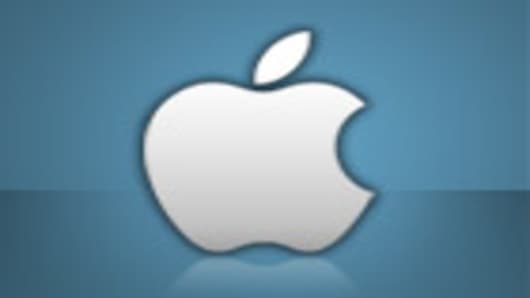Have you been following the blogosphere about the chink in the Apple/Intel armor?
Rumors are that part of Apple's "mystery products" alluded to during the company's conference call with Wall Street analysts will include a new generation of MacBook, and that instead of Intelinside, Applewill be going with another microprocessor instead.
The Apple switch from IBM'sPowerPC microprocessors to Intel's chips made big headlines a couple of years ago, and the relationship by all accounts, has been incredibly beneficial for both. And Intel's Centrino line of mobile chips has been doing very well too. Mobile chips a huge boon to Intel, and incorporating WiMax into its new line of Centrinos only serves to bolster the company's emphasis on all things wireless.
But Apple has been making moves of its own, acquiring PA Semi, with the company saying that deal was about new chips for new versions of iPod and iPhone. But could Apple be looking at taking that technology into a new line of notebooks? Seems like a stretch, but down the road it wouldn't surprise me.
There's also speculation that Apple has done a deal with Advanced Micro Devices to use that company's chips in new devices. That too would be a stretch, and that would surprise me.
I talked to a spokesman at Intel who tells me its terms with Apple are confidential, and he wouldn't comment as to whether it was exclusive or not. I have spoken to a number of analysts who expressed deep speculation that Apple would go AMD's way, especially with that company in a state of financial chaos now. AMD's chips work well, and they come at a significant discount to competing products from Intel. And for a company like Apple, trying to cut costs to pump up margins, AMD might be a compelling alternative. But Apple's selling 2.5 million Macs a quarter, record numbers in fact, without the cost cuts that could be afforded Apple by using AMD instead. So what's the compelling reason for Apple to choose AMD, especially now, especially as other AMD customers, including DreamWorks, are moving in the other direction and choosing Intel over AMD? Analysts I'm talking to remain skeptical. Not to say it won't happen, or couldn't happen, but it seems like a long shot.
The PA Semi angle is far more intriguing. If Apple has figured out a way to replace Intel's chips with something internally designed, the cost-savings could be enormous. But as Apple continues to see massive growth in Mac sales, you gotta wonder whether the company can find a manufacturer that can successfully handle this kind of volume, the way Intel can handle huge chip manufacturing volume. There's been talk that graphics chip maker nVidia could also become a player in the MacBook chipset sweepstakes or even Via Technologies.
Apple of course isn't officially commenting, but I'm talking to a few people inside the company who are playing this unusually close to the vest. One told me this might be part of a negotiation ploy by Apple as it tries to hammer out its next supply agreement with Intel, hinting to Intel that it is sniffing around for alternatives in case its next contract isn't attractive enough. Another told me Apple has no plans to abandon Intel microprocessors all together, that Apple is merely looking for an alternative to the latest Intel chipset that includes support devices like graphics and wireless networking; that new Apple laptops will still include the main Intel microprocessor, but that Apple is looking for alternative support chips since internally, Apple isn't happy with the latest Centrino group's graphics performance and power consumption.
That last scenario seems far more realistic to me. And far less damaging to Intel since its relationship with Apple would likely continue. The Apple/Intel relationship has exceeded just about everyone's expectations for success. I'd be stunned if Apple turned its back on Intel completely.
Either way, I'm just happy to be focusing on Apple technology again, rather than all that other stuff swirling around the company.
Questions? Comments? TechCheck@cnbc.com


